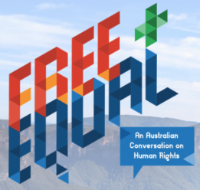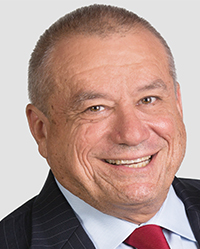Human Rights in Australia – 3 February 2024
Campaigning for the rights of Australians
The story of the struggle to enact human rights into Australian law, federally and in the states and territories, has been marked by prolonged agitation by interested community groups, exhaustive community consultation marathons and, rarely, actual legislation by governments.
Why do people want to live under a Human Rights Act (HRA)? Because HRAs better protect the average, less-powerful citizen. If they believe their rights are ignored, they can in most cases challenge the excessive might and assumed never-ending rights of politicians and government bureaucrats, and the punitive, penalty and taxing decisions of big departments and public agencies. People in Australia also want the same types of protections enjoyed under personal rights law by New Zealanders, Canadians, British people and Americans.
Only three human rights campaigns have so far succeeded in Australia. The ACT (2004), Victoria (2006) and Queensland (2019-20) currently have HRAs. There have been nine (9) unsuccessful attempts to enact a Federal HRA to cover all national laws.
What are the crucial factors which govern success?
- a committed champion to the cause, usually an influential member of
parliament prepared to take a stand on principle (1); - a group of community activists sufficiently dedicated to put in the hard work of lobbying elected representatives, business big and small, public service people and opinion makers across society;
- a raised awareness amongst people of the need to protect their rights;
- the promise of an effective way of neutralising reactionary, establishment and populist opposition to human rights and civil liberties;
- a government prepared to put a high priority on human rights, accepting
there may be political risk at giving more power to the traditionally poweless; and - a recognition by government that restoring trust in government
(historically low in the 2020s) is inextricably linked to society’s overall ethical infrastructure and people’s ability to access mechanisms to correct proven complaints of human rights violations…as simply, quickly and cheaply as possible.
(Note 1) The driving parliamentary forces for a HRA in ACT was Chief Minister John Stanhope, in Victoria Attorney-General Robb Hulls and in Queensland Committee Chair Peter Russo, MP
For a year since early 2023, a promising indication that the federal Labor government may finally enact a federal HRA is the briefing to the Parliamentary Joint Committee on Human Rights by federal Attorney-General Mark Dreyfus. He tasked the PJCHR with examining and reporting on the current ‘Human Rights Framework’ in Australia, established by Labor more than a decade ago. Importantly, they are to recommend on how to improve the HR framework, including whether Australia should have a HRA across its federal jurisdiction.
The PJCHR is due to report by the end of March 2024. It has logged a wave of support for a HRA. Of 331 submissions, 92% – more than 300 – favored a Human Rights Act.
 As well, the Australian Human Rights Commission (AHRC) conducted a four-year public consultation process to produce a seminal report of some 350 pages, Free + Equal, which also comes down strongly in favor of a national HRA.
As well, the Australian Human Rights Commission (AHRC) conducted a four-year public consultation process to produce a seminal report of some 350 pages, Free + Equal, which also comes down strongly in favor of a national HRA.
The AHRC report, and its recommendations to the PJCHR inquiry, incorporates No Rights Without Remedy provisions for rights complaints handling.
This NRWR model, now being entrenched in the ACT after its 20 years’ experience with the first HRA in Australia, gives a person the right to:
- take a legitimate complaint to the ACT Human Rights Commission to try to solve the problem by conciliation in the first instance; and
- if that doesn’t work out, with Commission approval, the complainant may put their case to the local “small claims” body, the ACT Civil and Administrative Tribunal, known as ACAT. (States have equivalent bodies: NCAT in NSW, VCAT in Victoria, etc. but until now no jurisdiction has had the NRWR provisions).
At the beginning of 2024, after three long years of COVID–19 issues, people are more aware across the nation of the need for a HRA to deal with the local jurisdiction’s day-to-day laws we all live by. Straitjacket restrictions placed on people during Covid were inconsistent across states and territories, and in many cases disproportionate, poorly explained and excessively enforced. People who lived through the height of Covid do not forget.
The “modern” Human Rights Act (HRA) – shepherded into place in the ACT with direct help from Civil Liberties Australia (CLA) and others, and in 2024 endorsed nationally as a model for Australia by the AHRC – will:
- help Parliament ensure that the Executive governs for everyone when spending our money;
- articulate the Government’s obligation to be humane to the powerless;
- offer an independent circuit breaker for disputes between executive government, parliament and individual citizens on matters of rights and integrity;
- provide a more rapid and humane resolution of breaches of the human rights of individuals caused by Government decisions and actions; and
- provide a standard against which public debate that stigmatises minorities can be judged.
The role of Civil Liberties Australia
CLA, being a nationally-focused body, is providing cross-jurisdictional information which may be useful in state and NT campaigns: reports, articles, suggestions for contacts, lobbying strategies, context in relation to political issues, known supporters, etc. In keeping with that aim, here is a rundown in early 2024 on the state of play throughout Australia:
TASMANIA
A previous campaign in 2007 had made significant progress, culminating in the Tasmanian Law Reform Institute’s report A Charter of Rights for Tasmania. This law reform body recommended the state legislate a human rights law.
Despite this and a further government consultation on specific protections to be included, the issue was ultimately stalled following the global financial crisis of 2008. There has been no action by successive Tasmanian governments since then.
In 2016, a campaign was launched to re-build momentum towards seeing a Tasmanian Human Rights Act become a reality, led by then CLA director Richard Griggs. An anticipated second report on a HRA for Tasmania has not yet been released by the Tasmanian Law Reform Institute, although it was expected in 2020. The Human Rights Act Campaign coordinated by the Anti-discrimination Commissioner in 2022 had no apparent follow-up to date.
However, other significant issues have raised public discussion about human rights. For example, the findings of the Commission of Inquiry into the Sexual Abuse of Children in Public Institutions alerted every Tasmanian to how widespread breaches of rights were against kids. Both the House of Assembly and Legislative Council have debated child rights issues and other adult obligations across a range of issues. There is now much more public reference to contravening human rights in the context of abuse of children and young people, as well as in the day-to-day regressive actions of Tasmanian executive government, bureaucrats and especially police.
The Custodial Inspector Report 2022-23 has also alerted people to the state’s failures to abide by formal requirements. Some failures arose under the Optional Protocol to the Prevention of Torture (OPCAT) and the domestic legislation NPM* Implementation Act 2022 which has imported OPCAT into domestic law. (*National Preventative Mechanism)
Meg Webb, Independent Member for Nelson, and Dr Rosalie Woodruff, Greens Member for Franklin, especially, have been proactive in prosecuting human rights positions in the Legislative Council and House of Assembly respectively. They have been supported by the Tasmanian OPCAT Network, Justice Reform Initiative, and the Australian Lawyers’ Alliance.
Human rights had a higher profile in 2023 than in the past and it is hoped that this may eventually demonstrate the value of a HRA for Tasmania. Shadow AG Ella Haddad has indicated her strong support of a HRA and noted growing community activity.
The next State election could be called early (2024 instead of 2025). The Lower House will expand from 25 to 35 seats and it is likely Independents and “third party” candidates may be elected in greater proportions than previously. A ‘balance of power’ or ‘minority government’ is possible. Such change presents a perfect opportunity for all candidates to be surveyed on their level of support for a Tasmanian Human Rights Act and for their positions to be made public before election day. TASCOSS is expected to take a leading role in furthering the HRA push.
SOUTH AUSTRALIA
The most advanced campaign within a non-HRA jurisdiction currently is South Australia. The state government, on 10 December 2023, announced a formal inquiry. The SA Parliament’s Social Development Committee will explore the potential for a Human Rights Act for the state. Submissions to the committee close on Friday 16 February 2024. Committee hearings are likely to be held over a number of months, with a report tabled and made public probably late in 2024.
The background to how the inquiry was achieved in SA is a good lesson in lobbying.
In December 2022, more than 150 organisations and individuals endorsed a statement calling for a parliamentary inquiry into a HRA for SA. The statement – released to coincide with International Human Rights Day that year – was led by the Rights Resource Network of SA (RRNSA), the SA Council of Social Service (SACOSS) and the local team representing Australian Lawyers for Human Rights (ALHR).
On 30 November 2023, the three groups helped deliver a parliamentary briefing on the need for a HRA in SA hosted by Ian Hunter MLC and Rob Simms MLC. The event included presentations from Make It 16, Change the Record, and SACOSS.
This event saw the official launch of the Human Rights Act for SA website – https://hra4sa-hra4nsw.nationbuilder.com/ – where people can pledge their support and be part of the conversation.
On 13 December the Law Society of SA held a special event to celebrate the 75th anniversary of the proclamation of the Universal Declaration of Human Rights. The former ACT Human Rights Commisioner, Dr Helen Watchirs OAM, presented ‘Reflections on the impact of the ACT Human Rights Act 2004’ and shared learnings that might inform potential future SA legislative frameworks.
The RRNSA is mobilising to maximise the number of submissions. With little enthusiasm from either the Premier or the Attorney General, active community support is necessary to convince the Labor government to legislate for a SA HRA.
WESTERN AUSTRALIA
In 2007, the then Western Australia AG Jim McGinty initiated an extensive community consultation process to gauge the support for a WA Human Rights Act. A committee led by former Liberal federal minister Fred Chaney, and supported by one of Australia’s top human Rights gurus, Prof George Williams, held more than 40 public hearings and received nearly 400 submissions from the public, community organisations, and government agencies. A clear majority expressed strong support for WA to adopt its own HRA, with legal protections for civil political, economic, social and cultural rights.
However, the state government decided to wait for the outcome of the 2009 federal HR ‘framework’ inquiry, which resulted in the Labor government failing to implement the main recommendation of the massive, national Brennan Inquiry, which held 64 consultations meetings throughout Australia. So no action was taken by the WA government.
In December 2017, on International Human Rights Day, a public campaign WA for a Human Rights Act was launched. This alliance of legal, human rights and community groups highlighted the human rights violations that Western Australians experience. It appears to have lapsed.
In December 2021, the WA for a Human Rights Act Coalition (WA4HRA) formed. The overarching goal of WA4HRA is to build on the 2007 consultation and obtain a commitment from the WA Government to introduce a HRA for WA. The WA4HRA Coalition is led by a steering committee comprising people from a broad network of member organisations and individual experts.
The steering committee is co-chaired by the Aboriginal Legal Service Western Australia and Australian Lawyers for Human Rights (WA) to campaign to raise public support for an Act, undertake political campaigning, and draft a HRA to encourage discussions and debate. With the campaign gearing up as next WA election comes closer (8 March 2025), CLA sent some material which may be useful to the campaign: (CLA’s paper on housing/homelessness, No Rights Without Remedy strategy through the ACT Legislative Assembly, and a draft of this roundup of activities in other states).
 In the past two years, in-principle support for a HRA has apparently come from federal Independent WA MHR Kate Chaney (photo), Legislative Council Greens member Dr Brad Pettit and Legalise Cannabis Party MLC Dr Brian Walker.
In the past two years, in-principle support for a HRA has apparently come from federal Independent WA MHR Kate Chaney (photo), Legislative Council Greens member Dr Brad Pettit and Legalise Cannabis Party MLC Dr Brian Walker.
CLA observes that the WA Labor in government has been extraordinarily reluctant to pursue a state HRA, despite an overwhelming parliamentary majority and the objective of a HRA at the core of their state policy platform. The state is riddled with human rights problems in incarceration of First Nations people, especially juveniles, and conditions in prisons.
A close observer of the executive and parliament strongly believes that WA would currently find it impossible to bring in and implement, let alone honor, a Human Rights Act because its focus is supporting the “big end of town,” and maintaining government’s stranglehold over the people. There hasn’t, for years, been any model of proper consultation with people to follow.
Website: https://www.wa4hra.com.au/
NEW SOUTH WALES.
Progress toward a human rights act for NSW was stymied for many years by the opposition of former Premier Bob Carr and the right wing of the NSW Labor Party – who were concerned at the potential for reducing parliamentary sovereignty in favour of the judiciary. Support for this argument has waned within NSW Labor over the past few years: the “dialogue” model of a HRA means that the parliament can always have the last say.
Now NSW Labor is in power after many years on the opposition benches, there appears to be renewed interest in a HRA amongst individuals in the Labor’s parliamentary wing and party members are starting a push for a HRA, although this does not seem to have coalesced into a settled intention. There is also strong interest in a HRA within the NSW Greens.
The political obstacles to implementing a HRA in NSW now seem to be legislative priority and the potential to attract the sort of negative campaign that brought down the Yes case for the Voice referendum.
In April 2023, The NSW Society for Labor Lawyers delivered an open letter to the State Parliamentary Labor Party:
“We look forward to working with our members and supporters to deliver a Human Rights Act in the next NSW parliamentary term…
“We are on the record as supporting the introduction of a Human Rights Act in this state, to bring our human rights framework into line with other eastern states and territories including Victoria, Queensland, and the Australian Capital Territory.
“In those states and territories, the introduction of human rights legislation has not taken power away from the sovereignty of parliament as many against the reforms predicted. Rather, it has substantially improved the conversation about human rights and the identification of problematic human rights practices.
“New South Wales could significantly benefit from similar legislation”.
The Human Rights for NSW Alliance is made up of community and civil society organisations campaigning for the human rights of NSW citizens which are guaranteed by law. The HRA4NSW Alliance is co-convened by NSW Council for Civil Liberties (NSWCCL) and Australian Lawyers for Human Rights (ALHR), and involves a steering committee which includes the NSW Society for Labor Lawyers.
All three organisations hosted a seminar on 13 July 2023 convened by Kate Eastman and former DPP Nick Cowdrey on the value of a NSWHRA. NSW Attorney General Michael Daley attended the seminar, as did Stephen Lawrence, a new Labor upper house member. AG Daley confirmed he is open to enacting a HRA and Stephen Lawrence indicated his support for it. There is some evidence emerging of broader support for a HRA coming from within the NSW Labor membership, offering another impetus for reform.
NORTHERN TERRITORY
In 2016-18, ‘Making Justice Work’ in the Northern Territory brought together a wide range of groups with a common interest in disability and discrimination legislation, and in effective responses to crime in the community. It appears not to have specifically campaigned for a NT HRA.
In late 2023, it was clear that AG Chansey Paech strongly supported in principle a HRA for NT. Like AGs before him in other jurisdictions, he is waiting for demonstration of strong community support. Newly-appointed Anti-Discrimination Commissioner Jeswynn Yogaratnam is also apparently positively disposed, but will be constrained by the nature of his position. NTCOSS is prepared to be passively supportive but was reportedly not willing to take an organisational role in a campaign.
In January 2024, a group led by Rainbow Territory and Darwin Amnesty met to plan a campaign. It will focus on gathering widespread support through signatures on letters from major community groups, and by gaining the commitment of major parties to enact a NT HRA. CLA has committed to initially assist in organisational and advisory role, after which locals will carry the responsibility to take the campaign forward from late-February.
The NT election is due on 24 August 2024, so campaigners will seek the individual stance on a potential HRA from each candidate standing.
REVIEWS OF CURRENT ACTS
ACT
The first jurisdiction in Australia to introduce a HRA, the initiative was led by John Stanhope when he was Chief Minister.
Significant changes to the HRA achieved in 2023 and 2024 will enable efficient and effective HR complaints handling, when the second tranche of the CLA-assisted reform agenda – No Rights Without Remedy – likely to be enacted in 2024-25. The first part is being put in place in early 2024.
Included in the Australian Human Rights Commission report Free and Equal, the No Rights Without Remedy provisions will provide a path for breaches of human rights complaints to be made initially to the ACT Human Rights Commission. If the matter cannot be resolved there by conciliation, it will be referred to the ACT Civil and Administrative Tribunal for determination and/or penalty, with a final source of resolution available in the ACT Supreme Court.
Victoria
The impetus for a HRA (in Victoria, called a Charter of Human Rights and Responsibilities) came from then AG Rob Hulls. A review of the Victorian Charter in September 2015 recommended amendments to make it simpler and easier to protect human rights by allowing people to take action in the more accessible and lower-cost jurisdiction of the Victorian Civil and Administrative Tribunal, VCAT: ie the No Rights Without Remedy principle. However, this reform was not carried out.
“There are no further statutory reviews of the Charter required, however we continue to advocate for Charter reform with Government and other stakeholders. Our key strategic priority is to embed a culture of human rights which includes that we would like to see human rights protections expanded in Victoria”. – Vic Equal Rights and Equal Opportunity Commission.
Those who support updating the Victorian Charter believe an eminent judge should be appointed to head a review process. They hope that the Victorian government will adopt a similar approach to that in the ACT and adopt the NRWR principle.
Queensland
 The push from the community was led by the Queensland Advocacy Network who headed a coalition of groups in conjunction with the Queensland Council for Civil Liberties and the Caxton Legal Centre. The essential parliamentary action was led by Peter Russo MP (photo).
The push from the community was led by the Queensland Advocacy Network who headed a coalition of groups in conjunction with the Queensland Council for Civil Liberties and the Caxton Legal Centre. The essential parliamentary action was led by Peter Russo MP (photo).
The review due in July 2023 is now overdue and, like Victoria, who is appointed to do the review will be important. Supporters hope the No Rights Without Remedy provisions for complaints handling will be incorporated, to build uniformity and mirror a future federal HRA. However, the fact that the review falls due in an election year (due in October 2024) does not bode well for its outcome. A postponement of the review may be a sensible approach.
It is very regrettable that the Queensland Government decided to override their HRA twice: in March 2023, the parliament passed amendments to override the state’s Human Rights Act to create an offence for children who breach bail conditions, require a sentencing court to consider a child’s bail history, and enabling a child to be declared a serious repeat offender.
The HRA was also nullified again in August 2023, to enable children’s detention in police watch houses and adult detention facilities.
“These moves have attracted a significant amount of criticism because they come so soon after the state’s Human Rights Act was adopted. And they are serious because children’s rights are the ones being trampled – twice – and children are among the most vulnerable members of our community, even when they commit crimes.” Nicky Jones wrote in The Conversation on 29 August 2023: “Queensland is not only trampling the rights of children, it is setting a concerning legal precedent.”
ENDS
Researched & written by Dr Kristine Klugman OAM, President of Civil Liberties Australia 3 Feb 2024
– updated with a literal correction and formal titles/campaign aims from WA on 10 Feb 2024


